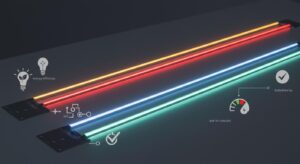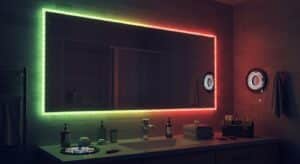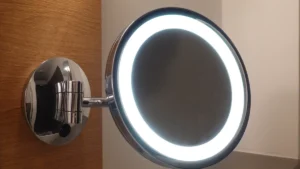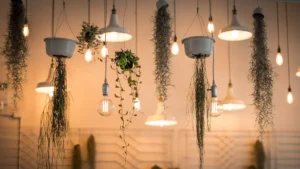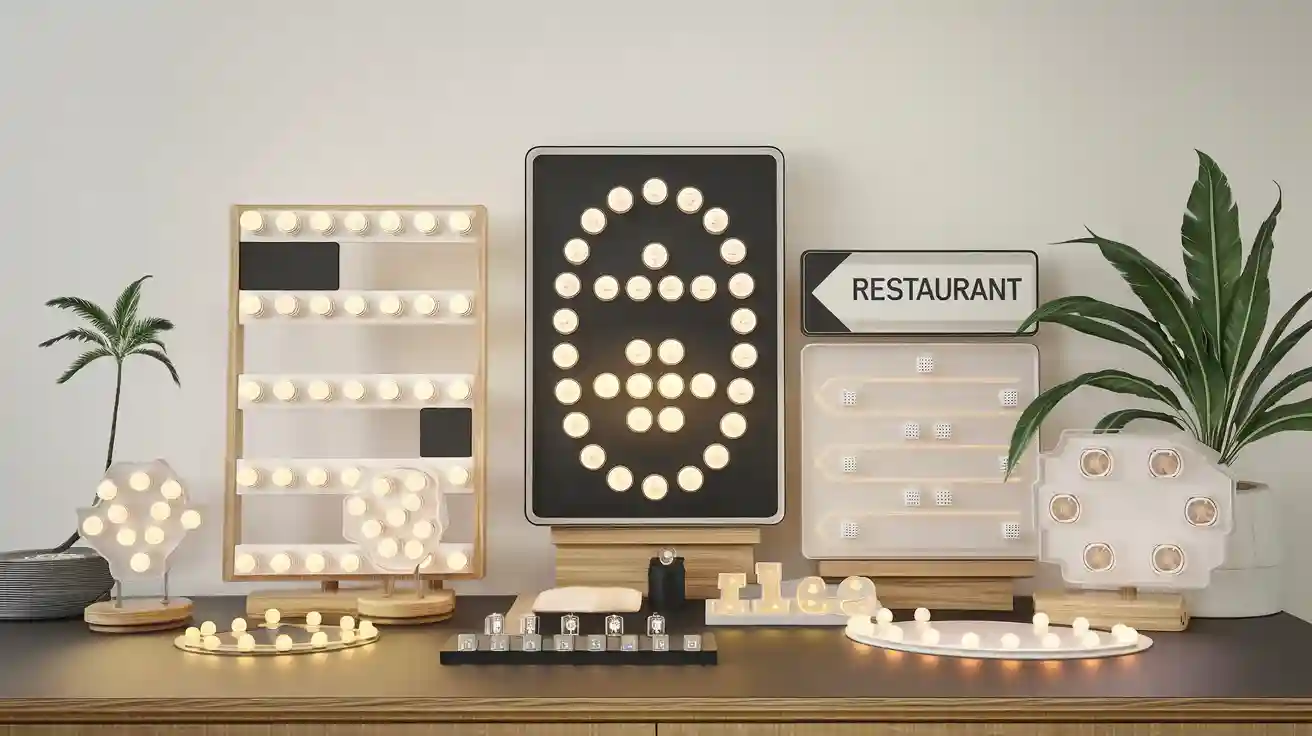
LED lights for sign boards are very important. They help your business be seen better and look good. Their bright light makes your signs easy to see, day or night. Think about these key points when choosing LED lights:
Brightness and Clarity: High visibility helps people find your business fast.
Energy Efficiency: LED signs use less power, saving you money on bills.
Installation Ease: Easy setups let you get your signs ready quickly.
With designs you can change, LED lights show off your brand while advertising your business all day and night.
Key Takeaways
Pick bright LED lights. This makes your signs easy to see in any light.
Choose energy-saving LED lights. They help lower your electricity bills and are better for the environment.
Think about how strong and weatherproof the LED lights are. This is important for signs outside.
Go for LED lights that are simple to install. This makes setting them up quicker and easier.
Find LED designs that you can change. This lets you switch colors and messages for special offers.
Types of LED Lights for Sign Boards
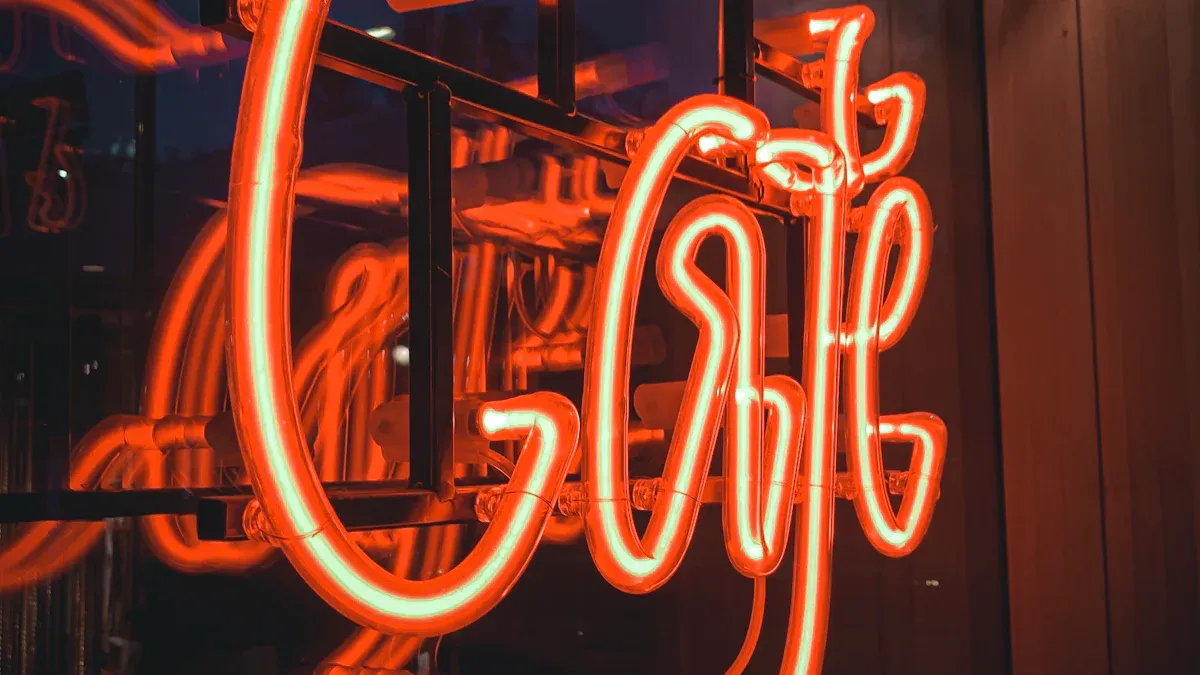
When you choose LED lights for sign boards, knowing the types is very important. Each type has special benefits and uses that can improve your signs. Here are the main types of LED lights to think about:
Standard LED Bulbs
Standard LED bulbs are a common choice for many signs. They are very energy efficient and last a long time, making them a good option.
Advantages:
Energy efficiency: Standard LED bulbs use less power than regular lights.
Longevity: These bulbs can last up to 25,000 hours, which is about 4 to 7 years. With care, they can even last up to 10 years.
Durability: They are less likely to break, which is important for outdoor signs.
Disadvantages:
Possible blue light hazards can affect how well you see.
They might be sensitive to voltage changes, which can affect how they work.
Advantages | Disadvantages |
|---|---|
Energy efficiency | Possible blue light hazards |
Longevity (up to 25,000 hours) | Sensitivity to voltage changes |
Durability (less breakage) | Limited light spread |
Less heat emission | Higher starting costs |
Customizability | May not work with old lighting controls |
LED Strips
LED strips are very flexible and can be used in many ways, making them great for different signs. You can bend and cut them to fit various shapes and sizes.
Applications:
Highlighting business names and details.
Helping people with directional signs.
Used in metro station signs and traffic lights.
Fitting around block letters and fixtures because they can adjust.
LED strips give a steady line of light, which is great for decoration. They can easily replace old halogen lights in signs, giving a modern look.
High-Intensity LEDs
High-intensity LEDs are made for outdoor signs where visibility is very important. They are super bright, making sure your messages stand out even in bright sunlight.
Benefits:
High visibility: With brightness up to 6,000 nits, these LEDs make your signs easy to see in any weather.
Dynamic content: You can change messages from far away, sharing information quickly.
Centralized control: Manage many signs from one place, making it easier to operate.
High-intensity LEDs are great for billboards and traffic signs, where being clear and visible is key.
Type of LED Board | Applications |
|---|---|
Indoor LED Boards | Advertising displays, scoreboards, info boards in malls, airports, and conference centers. |
Outdoor LED Boards | Billboards, traffic signs, stadium displays for outdoor ads and road safety. |
By knowing the types of LED lights, you can make smart choices that improve how visible and attractive your sign boards are.
Factors to Consider When Choosing Signage Lighting LED
When you pick LED lights for sign boards, think about some important things. These things help make sure your signs work well, save money, and last a long time. Here’s a closer look at the main points you should check:
Brightness and Clarity
Brightness is very important for how well people can see your signs. You want your signs to be easy to read in different light situations. Here are some things to keep in mind:
Bright lighting needs more brightness to be seen.
A big difference between brightness and background helps with reading.
Bright colors can make it easier to read in different places.
For indoor signs, you should have at least 300 nits of brightness. For outdoor signs, especially during the day, aim for at least 2000 nits. At night, you can lower this to 100-150 nits. Here’s a quick reference table for brightness levels:
Environment | Recommended Brightness (Nits) |
|---|---|
Indoor | At least 300 nits |
Outdoor | Minimum 2000 nits (daytime) |
Outdoor | 100-150 nits (nighttime) |
Outdoor | Maximum 3000 nits |
By making sure your signs have the right brightness, you help them stand out and get more attention.
Energy Efficiency
Energy efficiency is another key point when picking signage lighting LED. LED lights use much less power than regular lights. This means lower electricity bills and makes LED signs a smart choice for businesses.
Think about these benefits of energy-saving lights:
LED signs use 70-80% less energy than regular signs.
Using less energy helps the environment.
LED lights can last up to 100,000 hours, which cuts down on replacement costs.
Here’s a comparison of power use between different lighting types:
Lighting Type | Power Consumption (Watts) | Daily Consumption (Watts) | Yearly Consumption (KW) |
|---|---|---|---|
Das LED neon | 150 | 1800 | 657 |
Neon Glass | 400 | 4800 | 1752 |
Fluorescent Light | 610 | 7320 | 2672 |
Choosing energy-efficient LED lights for your signs saves you money and helps the planet.
Durability and Weather Resistance
Durability is very important, especially for outdoor signs that face different weather. You want your LED lights to handle the weather while still working well. Here are some features that help with durability and weather resistance:
Feature/Material | Contribution to Durability and Weather Resistance |
|---|---|
Corrosion-resistant materials | Helps them last longer and prevents rust, especially outside. |
Heavy-duty frames | Gives strength and stability against strong winds. |
Sealed modules | Keeps dust and moisture out of the lights. |
IP65 rating | Shows they resist dust and light water, making them weatherproof. |
Aluminum cabinets | Resists rust and keeps looking good and working well. |
Surge protectors | Protects the lights from power spikes, keeping them running smoothly. |
By choosing LED lights with these features, you make sure your signs stay working and looking good over time.
Indoor vs. Outdoor LED Sign Lights
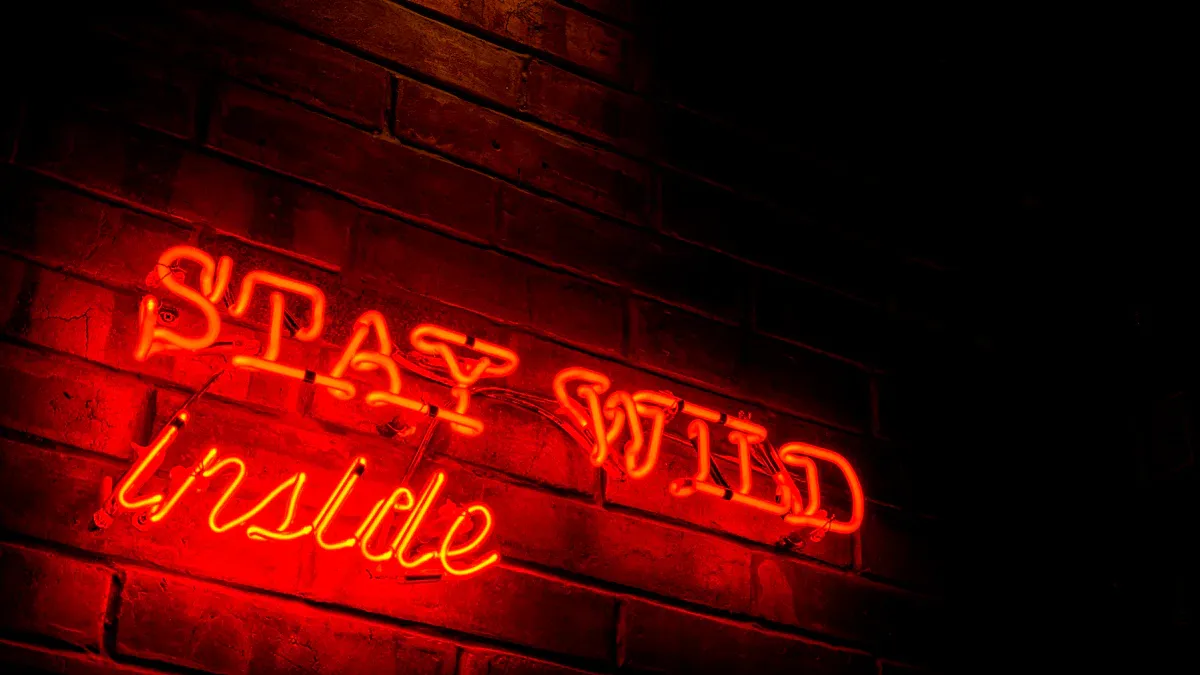
When you choose LED lights for sign boards, it’s important to know the differences between indoor and outdoor options. Each type has special features that affect how well they work in different places.
Indoor LED Characteristics
Indoor LED signs usually have lower brightness levels. This design works well in places with controlled lighting. It makes sure the signs are easy to see without too much glare. Here are some key points about indoor LEDs:
They use less power because they need lower brightness.
Indoor displays often have a finer pixel pitch. This gives high resolution for close viewing.
Color temperature is important for setting the right mood. For example, warm white (3000K) feels cozy, while cool white (6000K) looks bright and alert.
Color Temperature (K) | Description |
|---|---|
3000K | Warm white, cozy atmosphere |
5000K | Neutral white, natural daylight |
6000K | Cool white, bright and alert |
Outdoor LED Characteristics
Outdoor LED signs need higher brightness to be seen in direct sunlight. They are made to handle tough weather, making them good for many places. Here are some important features of outdoor LEDs:
They have weatherproof and dustproof cases. This helps them last against rain, snow, and extreme temperatures.
Outdoor displays usually have a larger pixel pitch. This allows people to see them from farther away.
Good quality outdoor LEDs often have extra protection, like coatings or cases, to make them last longer.
Feature | Indoor LED Displays | Outdoor LED Displays |
|---|---|---|
Brightness | Lower brightness for controlled environments | |
Environmental Durability | Not designed for harsh conditions | Built with weatherproof and dustproof enclosures |
Pixel Pitch | Smaller pixel pitch for high resolution | Larger pixel pitch for visibility from greater distances |
Cost | Generally more cost-effective | Typically more expensive due to additional features |
By knowing these differences, you can make smart choices when picking LED lights for your signs. This helps ensure they are easy to see and work well in your specific place.
How to Install Signage Lighting LEDs
Installing LED lights for sign boards might look hard, but it’s easy with the right tools and a good plan. Here’s what you need to start.
Tools and Materials Needed
Before you start, gather these tools and materials:
Heat Shrink: Seals and protects wire connections.
Solder Iron: Used for connecting wires.
Lift: Helps put lights on tall places.
Conduit Bending/Cutting Tools: Protects wires during setup.
Wire Stripper: Cuts and removes insulation from wires.
Voltage Tester/Multimeter: Checks power in wires.
Screwdriver: Helps attach or remove fixtures.
Drill: Makes holes for screws or conduits.
Electrical Tapes: Keeps wire connections secure.
Wire Connectors: Joins wires together.
Ladder: Reaches high spots.
Tip: Always keep safety first. Learn about local electrical rules to make sure you follow them.
Step-by-Step Installation Guide
Follow these steps to install your LED lights the right way:
Align the LED Sign Sections: Line up your sign cabinets in order, making sure a clear hole matches the threaded hole.
Insert The Bolts: Put the bolt through the clear hole and screw it into the threaded hole to hold the signs steady.
Fasten the Bolts: Use the provided socket to tighten the upper and lower bolts on the side of each cabinet.
Attach the X Clip: Place the X Clip in the center of every four cabinets and screw in the bolts to keep the clip in place.
Install the Mounting Brackets: Put the brackets on the back of the sign and use the provided bolts to secure them.
Lock Sign Sections Together: Connect the preconfigured sections of your LED sign to make the right size.
Note: Avoid common mistakes, like wrong placement or not preparing surfaces. These can cause glare or not enough light.
By following these steps, you can make sure your LED sign lights are set up correctly, giving better visibility for your business.
Picking the right LED lights for your sign boards is very important. It helps your signs be seen better and look nice. Think about these main points:
Brightness: Make sure your lights are bright enough for where they are.
Weather Resistance: Choose lights that can handle outdoor weather.
Energy Efficiency: Pick lights that save energy and lower costs.
Installation: Find options that are easy to set up and fit your needs.
Customization: Select designs that can change shapes and colors.
By making smart choices, you improve how well your signs work and help your business get noticed. Adjust your choices to fit what you need for the best results! 🌟
FAQ
What is the lifespan of LED lights for sign boards?
LED lights usually last from 25,000 to 100,000 hours. This depends on the type and how you use them. Their long life means you spend less on replacements and maintenance.
How do I determine the right brightness for my sign?
For indoor signs, you should aim for at least 300 nits. For outdoor signs, make sure they have at least 2000 nits during the day and 100-150 nits at night. This helps them be seen better.
Are LED lights energy-efficient?
Yes, LED lights use 70-80% less energy than regular lights. This means lower electricity bills and less harm to the environment.
Can I customize LED lights for my sign?
Yes! Many LED lights let you change colors and set messages. This lets you change your signs for different promotions or events.
How do I maintain my LED sign lights?
Check your lights often for dust and dirt. Make sure all connections are tight and look for any damage. Doing these things will help keep your lights working well.
See Also
Top Reasons to Choose LED Modules for Signage
Improving Sign Board Illumination with LED Modules
Key Tips for Selecting the Perfect LED Sign Module
